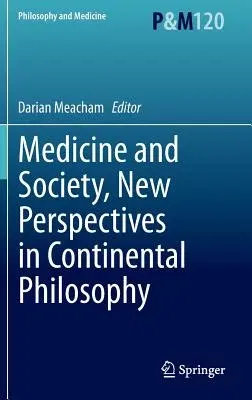This volume addresses some of the most prominent questions in
contemporary bioethics and philosophy of medicine: 'liberal' eugenics,
enhancement, the normal and the pathological, the classification of
mental illness, the relation between genetics, disease and the political
sphere, the experience of illness and disability, and the sense of the
subject of bioethical inquiry itself. All of these issues are addressed
from a "continental" perspective, drawing on a rich tradition of inquiry
into these questions in the fields of phenomenology, philosophical
hermeneutics, French epistemology, critical theory and
post-structuralism. At the same time, the contributions engage with the
Anglo-American debate, resulting in a fruitful and constructive
conversation that not only shows the depth and breadth of continental
perspectives in bioethics and medicine, but also opens new avenues of
discussion and exploration.
For decades European philosophers have offered important insights into
the relation between the practices of medicine, the concept of illness,
and society more broadly understood. These interventions have generally
striven to be both historically nuanced and accessible to non-experts.
From Georges Canguilhem's seminal The Normal and the Pathological,
Michel Foucault's lectures on madness, sexuality, and biopolitics, Hans
Jonas's deeply thoughtful essays on the right to die, life extension,
and ethics in a technological age, Hans-Georg Gadamer's lectures on The
Enigma of Health, and more recently Jürgen Habermas's carefully nuanced
interventions on the question of liberal eugenics, these thinkers have
sought to engage the wider public as much as their fellow philosophers
on questions of paramount importance to current bioethical and
social-political debate. The essays contained here continue this
tradition of engagement and accessibility. In the best practices of
European philosophy, the contributions in this volume aim to engage with
and stimulate a broad spectrum of readers, not just experts. In doing so
the volume offers a showcase of the richness and rigor of continental
perspectives on medicine and society.

